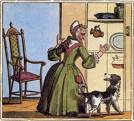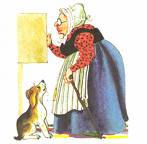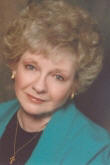
Welcome back to “ask the authors week.” This week we will pose five questions to our contributors, and you’ll find their varied answers to a single question each day.
If you have questions you’d like us to ask during a future “Ask the Authors” week, send it to
CharisConnection@gmail.com. As always, thanks for joining us!
Barbara asks: In your mind you plant the first tiny seeds for a story. How do you determine the angle you will use to write the story? Do you have a method?
Not to sound overly spiritual, but I believe the Lord plants that "first tiny seed," and then I let it germinate, watering it with research and prayer. Where to set the opening scene is the hardest thing for me. Even though I know I can throw it away if it doesn't work, I long to start out on the right foot. When I can put it off no longer, I just close my eyes, paint the landscape in my mind, and listen until my characters start talking. --
Liz Curtis Higgs
Something "divine" has to start happening. Someone mentions a detail, says that Marie Dorion, the only woman in the first fur trade expedition west after Lewis and Clark got back, and Sacagawea knew each other. Hmmm. Intriguing. Then someone else mentions the same subject over dinner in another state, let's say. Or I'm researching the history of hat pins and I read about the Astor expedition; or someone out of the blue emails me and says "I understand you're writing a book about Marie Dorion, the only woman in the Astor Expedition of 1811. (That did happen!) She'd worked with a descedant of that expedition. "Can I help you?" Could I turn that down? -Jane Kirkpatrick
I have no particular method, and my favorite way to write a story isn't necessary the most popular with the reader. I love to write in lst person. I think it brings a warmth and a closeness to the story that 3rd person POV can't achieve. But readers tend to find 1st person hard to read. -Lori Copeland
My method is simply to listen. After that seed of an idea plants itself in my brain, I give it some time to germinate and check in on it periodically to see what it’s doing. Once it has sprouted roots and I know it’s going to be viable, I start doing research and begin scribbling notes concerning characters and plot. That’s when I really begin to listen carefully. And that’s because the characters speak to me, telling me who they are and what they’re doing. I certainly have input into the story, but the characters have minds of their own. There have actually been times when I tried to kill a couple of them off and they refused to die. So I let them live and my stories were better for it. So the only way I can explain it is that I listen and let my imagination take over. Of course, it’s my conscious mind that does the hard work of writing, and rewriting, and rewriting again, and polishing…. -Ann Tatlock
I’ve learned that a novel is made up of four parts: characters, setting, plot, and theme. Any one of these four elements may be the first to make an appearance, and I have to let that element sit and wait until some other elements show up to keep it company. Sometimes my method is simply letting an idea marinate for a while. –Angela Hunt
I start a free form letter to myself. I just type away, asking and answering whatever comes to mind. Why am I interested in this story? Why would anyone else be interested? What might happen to whom? It's a stream of consciousness document. I'll come back to it the next day and do more of the same. This might go on for a week. I use the highlight feature to single out promising things. If I'm jazzed by the end of the week I know I may have something worth pursuing. -James Scott Bell
All my stories are developed through the characters. I don't believe I've ever thought about an "angle" or a "method." The characters tell the story, and I follow along to clean up after them. -BJ Hoff
It's a method of madness! I don't really know if I have an exact method. Sometimes it is decided by what comes first, the characters or the plot or the theme. If the plot is going to be the emphasis, I usually decide on third-person multiple point-of-view. If it's a character I want to focus on, I'll consider writing it in first person. Whatever the case, I get in my car and drive around the city for an hour thinking about it all. -Rene Gutteridge
Actually, I don't plant the first tiny seed. It plants itself. Blows into my brain (which ain't necessarily fertile) from something I've seen, heard, what-iffed--and before you know it, there's a tiny little seedling. Lots of 'em never grow beyond that point. I tend the ones I do because something's different about them. Odd-shape to the leaf, a different color, an interesting smell.
Once I have a premise, I think of the final twist. Then I fill in with smaller twists in the middle. This can be a long process and involve the kicking of many cabinets. Somehow I end up with a story. -Brandilyn Collins
For me there’s no method for coming up with “the angle” on a novel, if by that we mean a step-by-step system I can repeat from novel to novel. It’s just the result of a lot of thought about the theme, plot, and characters. By the time I sit down to start a synopsis I usually have about two months of work invested. I take long walks in the park talking to myself out loud (people passing by probably assume I’m mentally ill). I work up a 10,000 to 30,000 word “brainstorming” document. I do 40 or 50 hours of research. All of this is painful at times—I want to just get on with it—but I can’t seem to find a streamlined, easier way.-Athol Dickson
Because I don’t do much plotting before I start writing, the angle sort of seems to “determine” itself as I go along. In the first few weeks I’m working on a story, the words pile up very, very slowly, but there’s a lot going on under the surface. I’m constantly thinking about my characters and character traits suggest scenes that add to plot and build on each other until finally, thankfully, it all becomes a snowball rolling downhill, collecting speed as it goes. -Deborah Raney
I try to imagine which character's viewpoint has the most conflict, the most room for change and will tell the most compelling story. If there more than one character has a tale needing to be told, I'll opt for multiple POVs. -lisa samson
Because I am an "intuitive" writer, the angle unfolds as I ponder the idea. There is no particular method to my madness. I let the characters guide me as I begin to know who they are. Out of all the books I've written, only one (Beyond the Shadows, 2004) has been a first person POV. It was a story that demanded to be told that way. The next book I tried to write in first person, and it refused. But now I have another story that wants to be told in first person. Years ago I had an editor give me some good advice: "Go with your gut." So that's what I do. -Robin Lee Hatcher
























